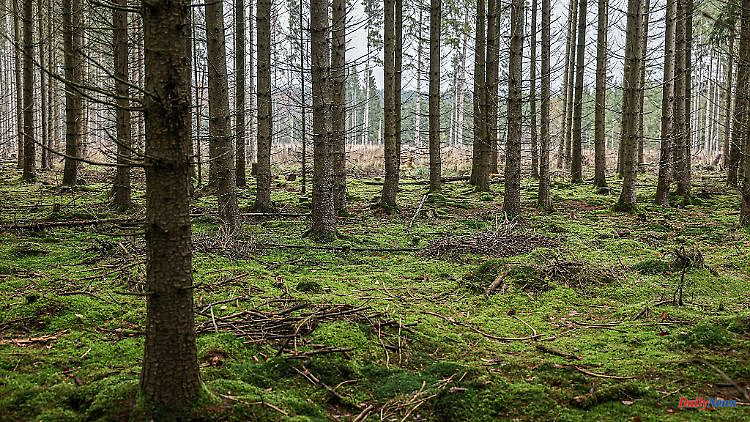Düsseldorf (dpa / lnw) - Representatives of all parliamentary groups in the North Rhine-Westphalian state parliament expressed concern about the state of the forests in the state on Thursday. The forest condition report showed that only 28 percent of all trees examined were completely healthy. Drought, fires and bark beetle infestations have taken their toll on the forests. In North Rhine-Westphalia, forest makes up 27 percent of the state area. Far more than half of the forest area is privately owned.
Previous spruce stands had completely died off on around 14 percent of the forest area, said Science Minister Ina Brandes, representing Agriculture Minister Silke Gorißen (both CDU). On the other area, around 86 percent, the forests would have largely survived the extreme weather. Reforestation has already begun on around a quarter of the damaged areas. The forests of the future would have to consist of several tree species.
In its application for the current hour, the FDP parliamentary group described the state of the forests as worrying. In order for the forest to be able to deal with challenges such as drought, pest infestation and climate change, active support and sustainable management are necessary, said Dietmar Brockes (FDP). Measures in the forest floor, reforestation and pest control are of central importance.
The MP Julia Kahle-Hausmann (SPD) referred to the immense pressure to use it, which will continue to increase in the coming years. Forests are places of leisure, healthy air, with many animal and plant species as well as wood suppliers. Green MP Gregor Kaiser said the collapse of forests in recent years will lead to a shortage of wood. In some places, wood consumption must be massively reduced, "for example in the paper and packaging sectors".












